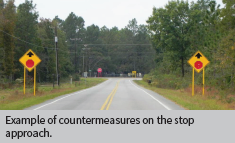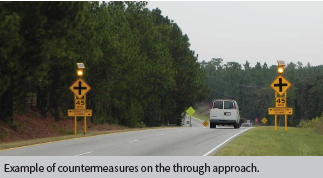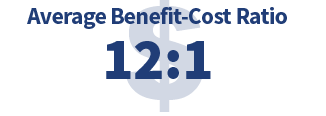U.S. Department of Transportation
Federal Highway Administration
1200 New Jersey Avenue, SE
Washington, DC 20590
202-366-4000

Source: South Carolina DOT
SAFETY BENEFITS:
10%
Reduction in injury and fatal crashes
15%
Reduction in nighttime crashes
This systemic approach to intersection safety involves deploying a group of multiple low-cost countermeasures, such as enhanced signing and pavement markings, at a large number of stopcontrolled intersections within a jurisdiction. It is designed to increase driver awareness and recognition of the intersections and potential conflicts.


The systemic approach to safety has three components: (1) analyze systemwide data to identify a problem, (2) look for similar risk factors present in severe crashes, and (3) deploy on a large scale low-cost countermeasures that address the risk factors contributing to crashes.
The low-cost countermeasures for stop-controlled intersections generally consist of the following treatments:
On the Through Approach
On the Stop Approach
Source: T. Le et al, "Safety Effects of Low-Cost Systemic Safety Improvements at Signalized and Stop-Controlled Intersections," 96th Annual Meeting of the Transportation Research Board, Paper Number 17-05379, January 2017.t

